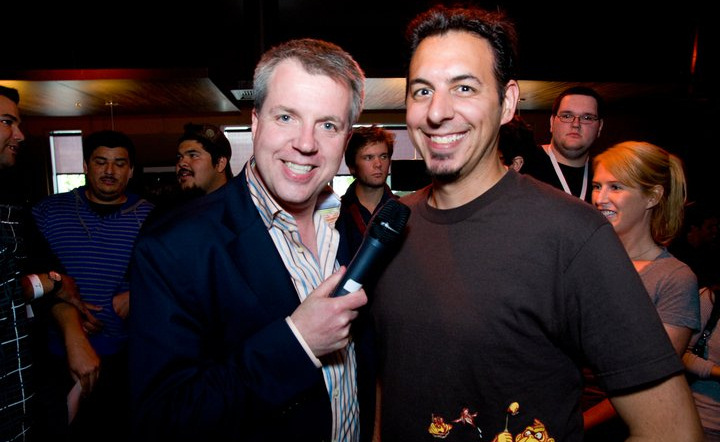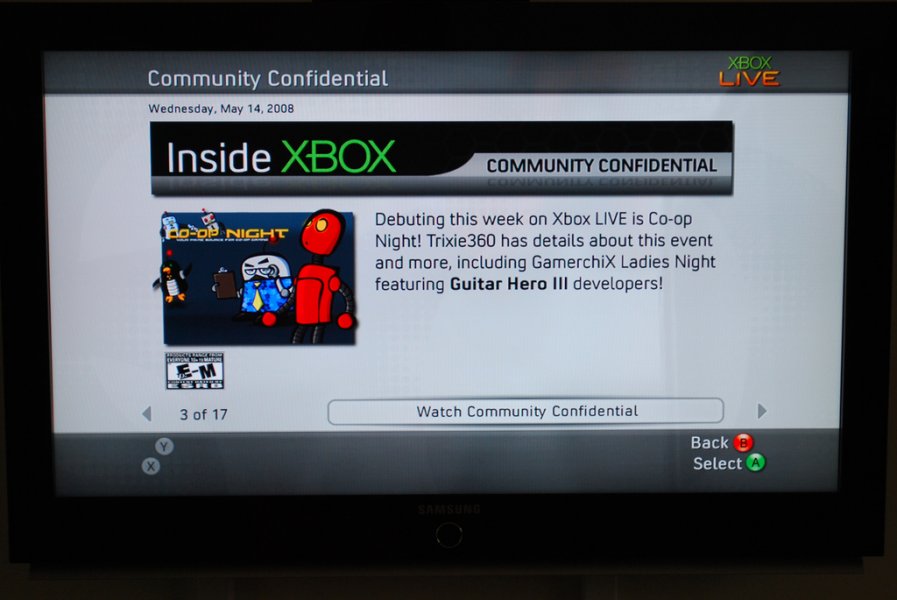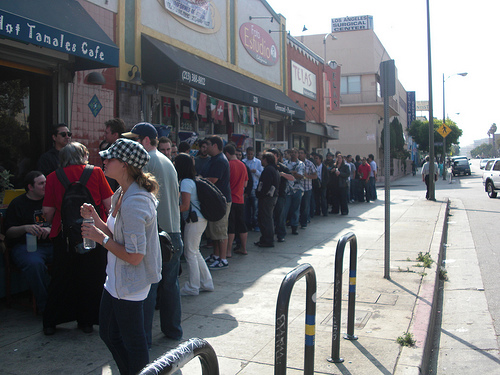
New Media Meet New PR
I think a lot of gamers underestimate just how much the PR game has changed in the past six or seven years in their hobby. Obviously the advent of social networks like Twitter and Facebook have changed the way companies interact with their consumers. There's no longer filtered channels of feedback or communication happening. "Comment Cards" are extinct. There was a point where a carefully controlled message was the norm, and while it still exists, it's much harder to maintain that control. Those larger outlets aren't necessarily the outlets with the biggest influence anymore.
I mentioned earlier how Microsoft started the generation by giving the enthusiast media unprecedented access to their console. That was just the beginning. Soon Microsoft created their own voice to talk directly to the consumer as well. Larry Hyrb, aka Major Nelson, was brought on as a blogger, podcaster and face to the product. Larry's focus was on the community and he knew how to engage them and how to excite them for everything Xbox. I can remember meeting Larry for the first time at that Xbox pre-launch event. He was generally interested in my feedback on everything from the games to how the controller felt and looked. It was easy to see that he cared and was passionate about the product. Over the years his podcast and blog expanded into video shows on the console itself, which eventually expanded even further bringing in other personalities with different focuses like Trixie360.
Christa Charter, aka Trixie360, created another voice for Microsoft and an even further focus on community. Like Major Nelson, Trixie360 had a video series on the Xbox dashboard where she could talk directly with and to the community. She also helped usher in "The GamerSpotlight," in which a community member was featured on the Xbox 360 dashboard and website for their 15 minutes of fame. For me, personally, Christa helped us create Xbox Live Co-Op Nights, which were a subset of Community Playdates. These specific events focused on a game or theme and invited the Xbox community and other websites to invite THEIR community to join in and play with staff, developers, and Microsoft employees. Once again the focus on community and inclusion was huge and having your website featured on the Xbox 360 dashboard was equal parts exciting and terrifying.

Finally Microsoft clinched and combined the community and the enthusiast media through a team called The Gamerscore Blog. These group of individuals were a dedicated team for Microsoft to help facilitate their message through the smaller niche sites. Their work throughout the few years at Microsoft was phenomenal in creating a core community of influencers. Individuals' contributions to the Xbox 360 were so "powerful" that in 2003 Microsoft added Xbox as an official MVP program category and really expanded it thanks to the Gamerscore Blog folks. This program was typically reserved for people that excelled in the technical aspects of Microsoft's other products like Windows Servers and Visual Studio, but recognizing the importance of community knowledge, Xbox MVPs became an important facet in the Xbox community.
Sony wasn't completely ignorant in this category - during the PlayStation 2 era they created a group called the "Gamer Advisory Panel" which rewarded the most dedicated PlayStation enthusiasts. The group stemmed from their PlayStation Underground venture and while it wasn't as small or exclusive as the MVP group Microsoft created, it did provide a direct way for folks to give feedback to Sony.

Sony's PS Blog Meetup in 2009
It wasn't until the middle of 2007 that Sony launched their own social media efforts alongside their PlayStation Blog. The site initially failed to find a voice - instead acting only as a mouthpiece for Sony's PR. That all changed, though, as they quickly brought in several personalities like Jeff Rubenstein to run the North American side of things and Jem Alexander, a former Joystiq blogger, to help out on the European side. An official podcast was added and Sony took things even further by inviting developers to blog about upcoming projects directly on the site.
It was obvious Sony realized just how important community was to their product and soon held Community Meet-Ups bringing PlayStation gamers together for food, drink, and, of course, games at various cities around North America. In an unprecedented move they even opened up dozens of seats at the 2009 E3 press conference just for their community members. Sony went as far as to host a reality TV show on PlayStation Network in which members competed to become a QA tester for PlayStation.